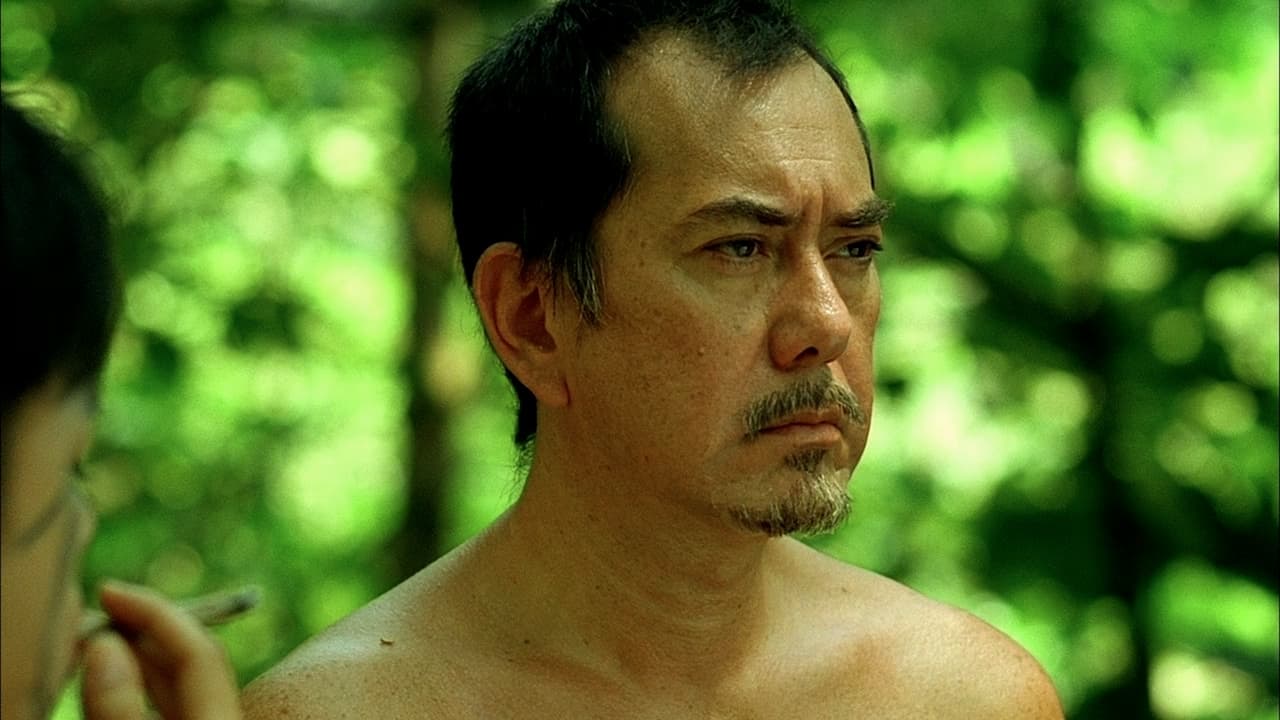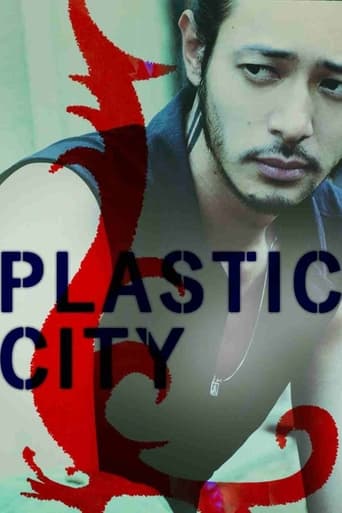

Lack of good storyline.
... View MoreBlending excellent reporting and strong storytelling, this is a disturbing film truly stranger than fiction
... View MoreIt's the kind of movie you'll want to see a second time with someone who hasn't seen it yet, to remember what it was like to watch it for the first time.
... View MoreWhile it is a pity that the story wasn't told with more visual finesse, this is trivial compared to our real-world problems. It takes a good movie to put that into perspective.
... View MoreFirst, let's dispel some of the misinformation about this film. It's not "like 300" (there is a scene in the film lasting a few minutes which emulates the aesthetics of "300", which itself mimics the "bullet time" technique in "The Matrix"). There is no relation to "South Park" (???). And the only real similarity the movie shares with "City of God" is that it takes place in an impoverished area in Brazil (and it is increasingly agitating to read reviews about Brazilian films or films that take place in Brazil which constantly reference "City of God").The story in "Plastic City" revolves around a counterfeit goods smuggler named Yuda (played by Anthony Wong) and his adopted son Kirin (played by Jo Odajiri), who are facing the end of their business as a result of the economic and political changes of globalization. To facilitate Brazil's integration into the global economic system, Brazilian politicians have initiated an anti-piracy and anti-counterfeiting campaign to clean up the country's international image that threatens the livelihood of some of Sao Paolo's most impoverished communities who depend on this illicit economy for a living. Meanwhile, with permanent relocation of production facilities to third world countries where the cost of labour and production are cheaper, the demand for affordable brand-name and designer products traditionally supplemented by illicit counterfeit merchandise is slowly being filled by surplus or "left-over" goods coming from the factories contracted by brand-name companies that have fulfilled their quota. A Taiwanese businessman approaches the father and son with an offer that would help their "business" transition from counterfeit import to surplus import (equally illicit). Yuda resolutely rejects the offer, thus starting a "war" that mobilizes politicians, street gangs, and mercenaries.This premise could have been developed in any number of interesting directions. The problem is that Nelson Yu seems to have gotten bored with just making a political commentary, and decided to focus on telling a story about the relationship between Yuda and his adopted son (that unfortunately turns out to be not very interesting at all). The story ends up being poorly paced as a result of the fixation on interpersonal relationships (that do not always advance anything related to the plot), with the last 1/3 the film stitched together by a series of disconnected scenes meant to convey certain symbolism and metaphors about "tradition vs. modernity" that, quite frankly, I couldn't be bothered to make sense of because neither the story nor the characters made it worth the effort. Anthony Wong does what he can, given the script and the direction he has to work with. Other than admiring his performance, there isn't much else I found entertaining about this film.
... View MoreShot mostly in Brazil and against a blue/green screen, Plastic City had all the trappings of a classic gangster flick. After all, it has Hong Kong veteran Anthony Wong whom we all know can go crazy if the role calls for it, and Japan's Jo Odagiri who is more than just your pretty boy actor as showcased through his range of characters in his filmography. Unfortunately, under the rookie directorship of Yu Lik-Wai, this city became too sprawling a convoluted mess of half-baked ideas and ambitious presentation that fell flat on its face.Supposedly, it tells the story of two Brazilian-Chinese guys - Kirin (Odagiri) and his "father" Yuda (Wong), who owns an established underground empire built on counterfeit goods. Naturally their clientèle are the have-nots who want to have, and their influence extend until the corrupt politicians in scratching each other's backs. For instance, one of the rare examples of a fun scene here involved a senior politician wanting to look good to his electorate, waging war on fake products, only to have the duo's men arrested and immediately let go behind closed doors, as agreed under the table.Sadly the film turned out to be more flashy and with more style than substance. Suffice to say Yuda got into trouble, and Kirin takes over the family business while plotting to bust Yuda out. Throw in some unbelievable romantic elements to introduce some classic flower vase roles such as Yi Huang's Ocho, whom Kirin tries to get it on with in Yuda's absence.Many scenes don't make too much sense because they're presented in a non-linear manner, and the danger here is of course no clear demarcation when a drift in timeline happens, which Yu Lik-wai lapses into time and time again. He also seemed to have found a lot more glee in crafting highly charged and stylized action, rather than dig deeper into the motivations of the characters, or sticking to basic storytelling 101 - do not seek to confuse your audience.Containing many stock images to highlight the seedy underbelly of Sao Paolo, and sometimes the more touristy type images of what Brazil can offer, the presentation is mostly in darkened hues to accentuate the dark side of life that the characters reside in. Speaking mostly in Portuguese, something a lot more irritating here was having to observe the voices being dubbed over, since lip movement and what's being heard seldom gel. Those who cannot stand their audio being out-of-sync, would know what I mean here, with that being the constant, distracting thorn.The only saving grace here is the eclectic, trance inducing soundtrack, which of course is never enough to mask the stench of a stinking story nor to cover up the shortcomings of a rookie helmer. Only for die-hard fans of Anthony Wong or Jo Odagiri who don't mind giving Yu Lik-Wai a go and a chance.
... View MoreFirst time movie director Nelson Yu Lik Wai gave his very best shot with his full length feature, Plastic City. With his very best shot, he tried various style of presenting the story. Evenntually, it lead everyone lost in nowhere, which happens to be the opening scene for the movie.Anthony Wong and Jo Odagiri plays Yuda and Kirin, both were fugitives survived from the guns of Brazilian mercenaries. Set in the modern day Brazil, Yuda owns an counterfeit goods empire, which specializes in counterfeit products and pirated DVDs. Kirin, the godson of Yuda, believes in the philosophy of 'earning real money through selling fake goods'. When Yuda was arrested for manufacturing and distribution of counterfeit goods, Kirin took over the business. Using money and relationships with the military, Kirin pulls Yuda out of the trouble with the law.Facing the pressure from the police, Yuda abandons his business and starts a new life. On the other hand, Kirin lost his buddies in a gang fight and his girlfriend left him after the fight. He embarks a journey to look for Yuda.Being a new director, Nelson Yu was given the opportunity to film Plastic City in Brazil, with the support from various film commissions from Brazil. However, we do not get the very best out of the movie.In some way, Plastic City is a combination of City of God, Lower City, 300 and South Park. Extract the gangsterism from City of God, add in a touch of sexuality from Lower City, blend in some CGI battle scenes from 300 and glazed it with the social issues discussed in South Park. The final product: Plastic City.Plastic City tried to discuss issue on gangsterism from Lower City, and it barely covers all. The sleaziness from the strip clubs barely shows the link to the story. Gang fights were shot on blue screen, filled with plenty of CGI effects which looks exactly like what one would have seen from 300. Poverty, high crime rates in Brazil and the corrupted government add a little touch to the story.There is no flow in the storyline, which is hard to swallow. Storyline without any connection and linkage worsens the overall feature of the film. To make it more confusing, scenes were presented in some flashbacks, and a bit of MTV style presentation.Anthony Wong and Jo Odagiri uses Portuguese for most of their lines, which unfortunately, were performed by the professional dubbing artists. With more than 60 percent of dialog in Portuguese, one can easily spot the movement on the lips failed to match with what was heard. This is a letdown to the audience as one would expect their lines to sound as original as possible.In overall, Plastic City is only worth watching when you are left with nothing but plenty of F-graded rubbish around you, since you can't go wrong with the acting skills of the two professional actors.
... View Moreheck of a movie - in that I was not sure in the beginning. very not sure.the story started off as kind of immigrant vs local kind of power vs new Tawain struggle. Immagrant being Yuda and 1/2 son. It's set in Brasil with Chinese immigrants. i got restless because each scene was so short.. hard to get into the story. turns out story is a facet to the underlying meaning of changing tides and changing world (under). Towards the end, a more symbolic approach takes hold and solidifies the message.Each scene/shot set-up is meticulous to say the least. flawless light play and lighting. too bad didn't stayed for Q&A. I had question about the tattoo; the chop off arm; the white tiger; the Buddhist saying, and the ending sequence.**spoiler** the ending sequence of chopping of a branch from a tree seems to say the old man do the work, hands the working knife to the next generation. And for the next generation to take over, it must kill the old ? But I can't see a regular audience can sit through this. solid effort though.
... View More